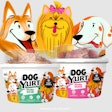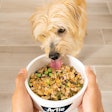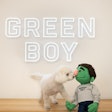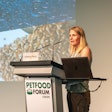
Various inspirational quotes refer to how a crisis creates an opportunity. In the pet food industry, some companies found ways to make lemonade of the lemon harvest that followed the U.S. Food and Drug Administration announcement of July 2018. The agency informed the public about its investigation into correlation among canine dilated cardiomyopathy and some grain-free dog food formulations made with potatoes, peas, lentils or other legume seeds. While the resulting consumer fears closed a door for some brands as sales of their products declined, a window opened for dog foods and treats positioned to rebrand or reformulate.
“Brands that can quickly formulate solutions that are aligned with revised consumer preferences have the opportunity to take advantage of this and acquire customers and shelf-share at retail,” Bryan Jaffe, managing director of Cascadia Capital said.
For example, one dog treat company started labeling and marketing their dried fish products as sources of taurine. Meanwhile, some dog food formulators began supplementing products with the amino acid taurine, while reducing usage of potatoes, peas, lentils and other ingredients associated with the FDA investigation.
Dried fish marketed as natural taurine topper
Adding taurine to cat food keeps DCM at bay in felines, since they can’t create the chemical in their own bodies. Scientists thought all dogs were capable of synthesizing taurine, although a few breeds such as Golden Retrievers are prone to DCM. Some pet food nutrition experts have suggested adding taurine to dog food as a stopgap measure to address DCM in dogs too, but many questions remain.
Although grain-free dog diets correlated to these DCM reports, many more dogs who ate the same foods for years never suffered any ill effects. Why do thousands of dogs with similar breeds and lifestyles have no heart problems on grain-free diets heavy in legumes or potatoes, while their conspecifics suffer heart problems? Similarly, researchers don’t know why the cases of DCM started appearing in the past few years, although the grain-free trend is a decade old.
In this confusing situation, pet owners are looking for insurance against DCM. To address dog owners’ fears, Icelandic+ executives adapted the marketing of the companies’ dried herring and capelin products for dogs after the FDA announcement.
“We had something within what we were offering that could allay some of those concerns,” Jon Roska, CEO of Icelandic+. “We wanted to let people know that there is something here that they can use.”
Dog owners have shared images on social media of using Icelandic+ dried fish as a natural topper to provide taurine, while continuing to use their preferred dog food brand, Roska said. This gives peace of mind to the owner, without having to transition dogs to new diets.
If the DCM connection to grain-free diets is real or not is the big unknown in the pet food industry right now, Roska said. While experts go back and forth, Roska’s team decided to adapt their marketing. Even if taurine’s role in DCM proved to be a red herring, their dried herring products still provided health benefits.
“We at least know these fish are one of the best sources of taurine in world,” he said. “So, we did some rebranding to focus on that.”
For example, their packaging now includes a red heart ringed by the words “with naturally occurring taurine.”
Roska said he’s noticed many similarities among the DCM situation and previous crises he’s seen in his career, like the melamine recalls of 2007. Those crises influenced consumers to demand greater transparency, traceability and safety assurances. As such, Icelandic+ was already focused on meeting those demand trends before the FDA announced their investigation. DCM fears then amplified those consumer demands.
“Pet owners are so focused on transparency, now,” he said. “They want to know are you ethically, naturally sourced. Well, that’s what we hang our hat on.”
Even Icelandic+’s bags are fully transparent, he said. Since they offer whole, dried herrings and capelins, having packaging that shows off the whole product enforces the idea that buyers know exactly what they are getting. Local fishing crews harvest the fish from managed fisheries in the coastal waters of Iceland. Since the species are mostly used as bait for cod and other fish, they don’t compete much with human food sources. Iceland’s volcanic heart provides the geothermal energy used to dry the whole fish and skins.
Pet food company alters marketing to address DCM fears
Dog food companies have altered their marketing post-DCM as well. Several have started promoting their use of specific grains, as consumers grew leery of grain-free products. For example, Merrick Pet Care was already using certain grains, including brown rice and oatmeal, in their formulations a decade before the FDA investigation began, Jilliann Smith, director of communications for Merrick said.
“These healthy grains are easy for dogs to digest, are an excellent source of energy and offer a good balance of carbohydrates and fiber,” she said.
However, Merrick’s dog food formulators did react to the sudden pet owner concern over DCM. In January 2020, “Healthy Grains” will be added to Merrick Classic recipes’ name to make it clear that the products contain ancient grains, such as quinoa and barley. Merrick also plans to update their classic recipes to be pea free and lentil free in addition to the brands’ current potato free claim.
As the FDA continues their investigation, more dog food and treat companies may find an opportunity while others find turmoil.



















